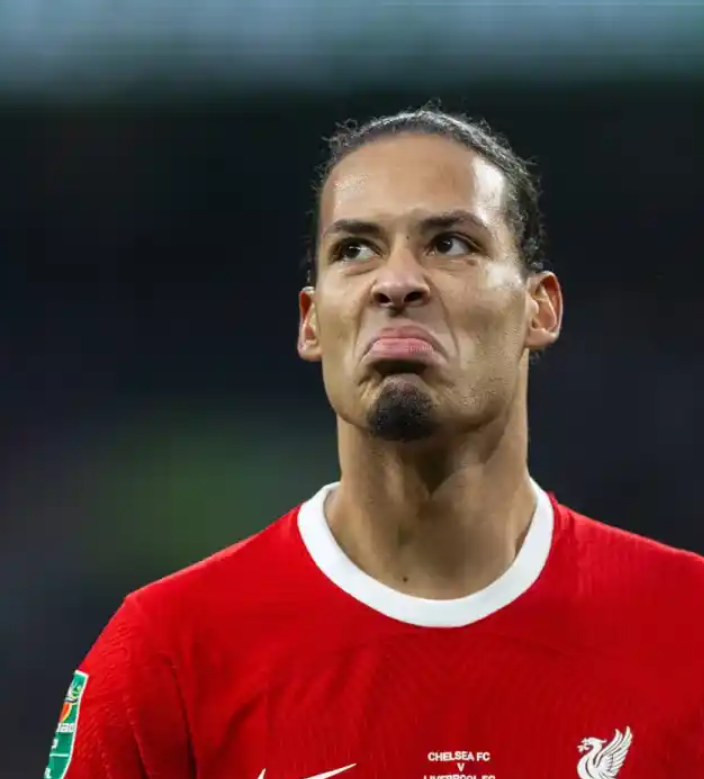Virgil van Dijk regarded to open the scoring for Liverpool in the second half of of the Carabao Cup final, solely for the aim to be disallowed.
The Reds’ skipper powered home a header from an Andy Robertson free kick from deep, easily outmuscling Chelsea captain Ben Chilwell and leaving Dorde Petrovic stranded.
The aim provoked scenes of jubilation from the traveling Liverpool fans, only to flip to dismay as referee Chris Kavanagh ruled the goal out after being precipitated to take a look at once more on the reveal by using the VAR team.
WHY WAS VAN DIJK’S GOAL DISALLOWED?
Confusion reigned as Van Dijk’s reputedly best intention was dominated out, with fans left scratching their heads over the decision.
The on-screen motive for the VAR take a look at was once “possible offside” with the Reds’ No. 3 Wataru Endo the man in question.
Endo used to be in an offside role when the free kick used to be taken, however seemed to have little affect (if any) on the set play.
However, the Japan captain used to be seemingly adjudged to have interfered with an opponents run in the direction of the play, doubtlessly stopping Levi Colwill for attempting to mission Van Dijk for the ball.
As per IFAB legal guidelines on offsides, it is an offside offence if:
“A player in an offside role at the moment the ball is performed or touched via a team-mate is only penalised on becoming concerned in energetic play by:
preventing an opponent from taking part in or being in a position to play the ball via truely obstructing the opponent’s line of vision or
challenging an opponent for the ball or
clearly attempting to play a ball which is shut when this motion influences on an opponent or
making an obvious motion which definitely affects on the ability of an opponent to play the ball
“A participant moving from, or standing in, an offside role is in the way of an opponent and interferes with the motion of the opponent towards the ball this is an offside offence if it influences on the ability of the opponent to play or mission for the ball; if the player moves into the way of an opponent and impedes the opponent’s growth (e.g blocks the opponent) the offence must be penalised below Law 12.”
That, however, would seem a unique harsh interpretation of activities when face with what clearly happened.









